For too long, we’ve been conditioned to rely on the government to solve our problems. We no longer want the Stewardship Responsibility over our lives so we give it along with freedom to someone else to care for us. Yet, when we give control to institutions like the DMV, we often find ourselves questioning their effectiveness. The truth is: real change doesn’t come from the top down—it comes from the bottom up. God works through individuals who take responsibility, empowering them to spread hope and transformation through free will, not imposed force. The greatest societal changes throughout history have always emerged from grassroots movements, driven by the free collective actions of individuals.
1. Grassroots Innovation: Worthy Ideas Spread Organically
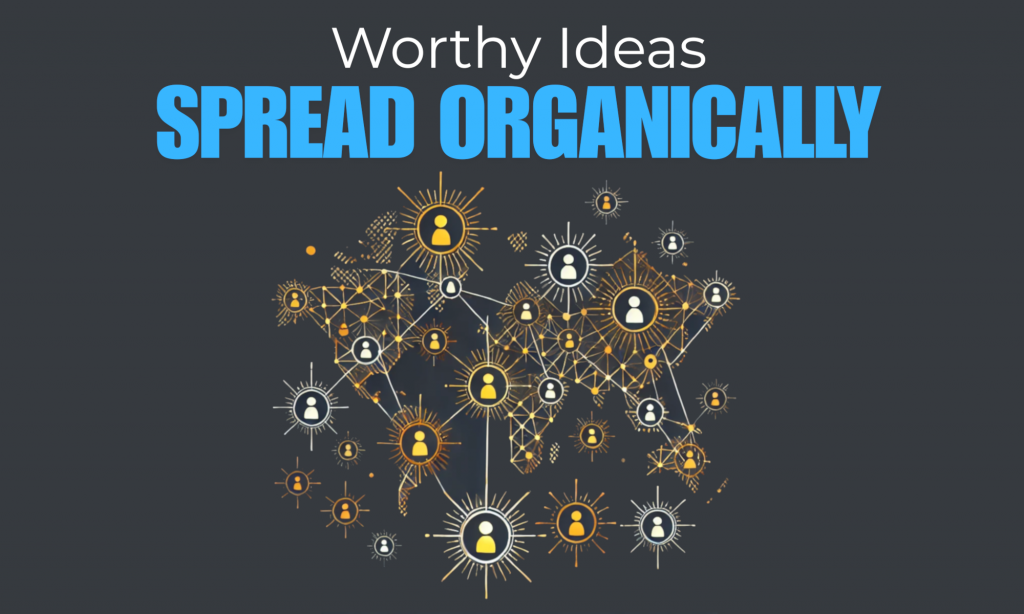
True innovation and meaningful change thrive from the bottom up. When an idea is valuable, efficient, and effective, it will naturally take root and flourish. Conversely, flawed ideas—those that are inefficient and ineffective—should be allowed to fail. Supporting broken systems is poor stewardship of God’s creation, wasting precious time, energy, and resources.
In top-down systems like communism and centralized banking, inefficiency is perpetuated by constant centralized control, stifling growth and adaptability. In contrast, true freedom fosters grassroots innovation, empowering individuals to adapt, and respond to real world needs and opportunities efficiently. This principle applies not only to governance but also to systems like centralized banking, which are inherently inefficient. Centralized structures lack the flexibility and responsiveness needed for decentralized value exchange—perpetuating inefficiency, forcing reliance on outdated, rigid structures.
History shows us that the world’s most significant innovations have emerged from the private individuals, where freedom allows creativity to flourish.
2. Restoring Balance: Empowering Individuals Through Limited Government
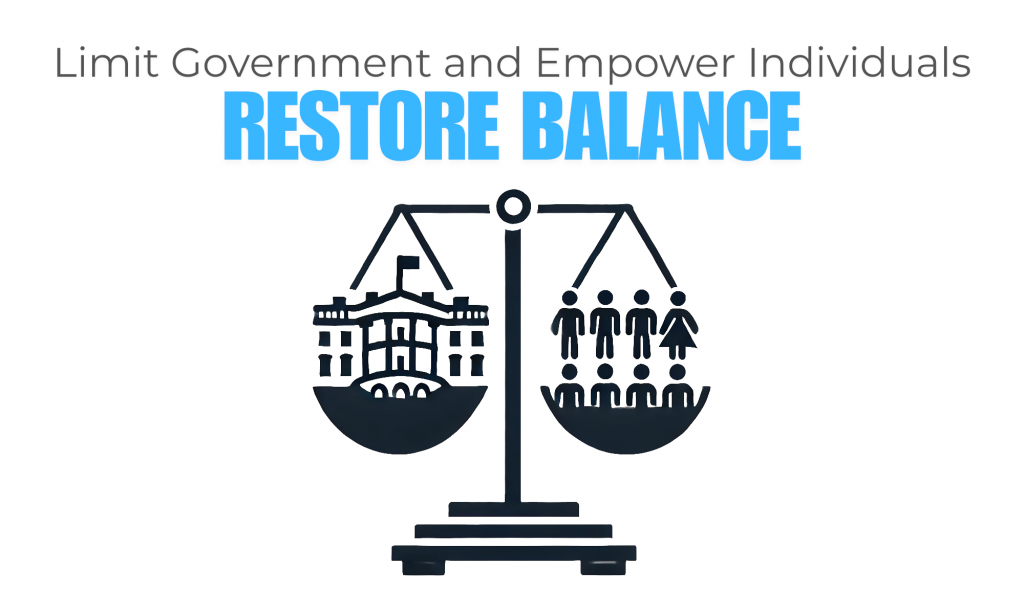
The role of government should be that of an arbitrator, stepping in only when individuals or entities cannot resolve disputes themselves. The process should scale naturally: disagreements between individuals should be settled locally, disputes between cities resolved by the county, conflicts between counties addressed by the state, and only when states cannot resolve issues should the federal government intervene. This model respects subsidiarity—resolving issues at the lowest possible level while preserving the freedom to innovate and thrive.
Unfortunately, we have strayed from this vision. Leadership, which should reflect God’s model of meek stewardship—marked by love, guidance, and self-sacrifice for the benefit of others—has been corrupted. Instead, it has become a form of entitled ownership marked by selfishness, control, and exploitation for personal gain. However, it is not too late to return to God’s design for leadership and community. By embracing His principles, we can restore systems that honor God—promoting freedom, faithfully stewarding His creation, and empowering individuals to build a brighter future.
3. Personal Responsibility: A Path to Empowerment and Forgiveness
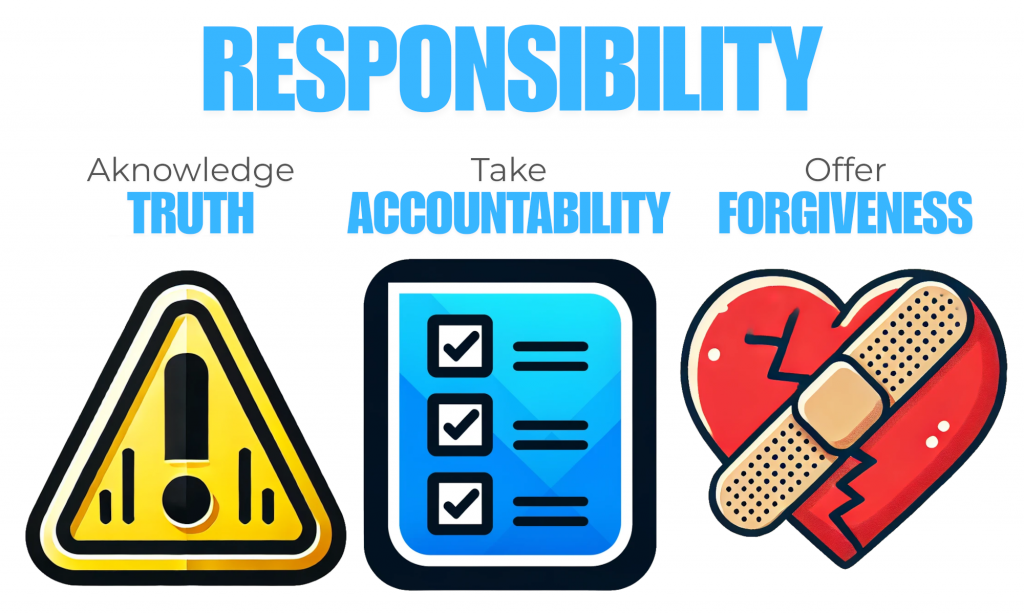
Just as local municipalities manage local infrastructure, states manage state roads, and the federal government oversees federal highways, government intervention should be limited to areas where it’s absolutely necessary. This works only when we take stewardship responsibility for our lives and handle the problems that we encounter.
The real issue today is that many people feel entitled and expect the government to solve problems that should be addressed privately—by individuals, businesses, and communities. Consider the issue of job creation. People often complain about the lack of job opportunity but rarely take the initiative to create businesses that address the needs of others. Instead, they look to work in someone else’s vision, assuming opportunities only exist within another company’s top down framework. Many will blame others for not fixing their problem properly. At its core, work is about providing value or solving a problem for others. “Making money” is simply a reflection of the value you provide. To get past this entitled victim mentality we must first acknowledge there is a problem, accept it is our responsibility to fix our own problems, and forgive those who we were blaming for the problem. Only through taking back responsibility for our life, can we have the ability to respond and fix it. Otherwise we will be a helpless victim, angry because we feel entitled, believing someone else should go out of their way to fix our problem.
4. The Hidden Costs of Money: Inefficiency, Inflation, and Debt
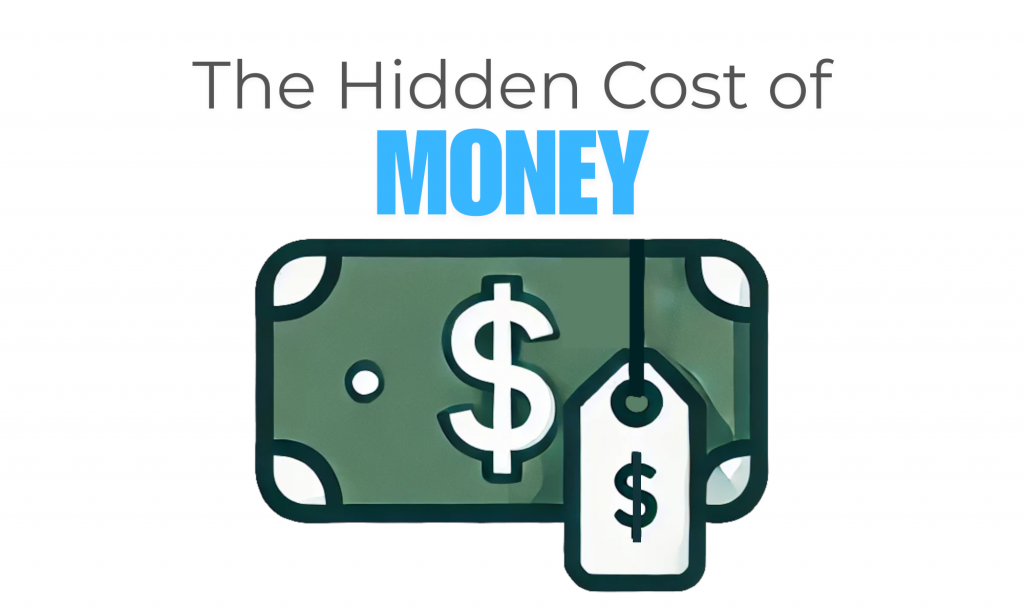
Money was invented to solve the limitations of bartering, enabling smoother exchanges when direct trade wasn’t practical. However, centralized monetary systems introduced inefficiencies, inflation, and debt through intermediaries and rigid control. For example, centralized banking adds layers of complexity and cost, yet remains dominant due to the historical absence of viable alternatives.
Inflation, often described as the hidden cost of money, is an inherent flaw in centralized debt systems. Over time, inflation grows exponentially, making it mathematically inevitable that these systems will collapse into hyperinflation.
Today, advancements in technology present a unique opportunity to move beyond these outdated, inefficient structures. By empowering individuals and fostering collaboration, these systems pave the way for stronger, more resilient communities built on trust and shared prosperity.
5. A Better Way Forward: Freedom, Innovation, and Efficiency
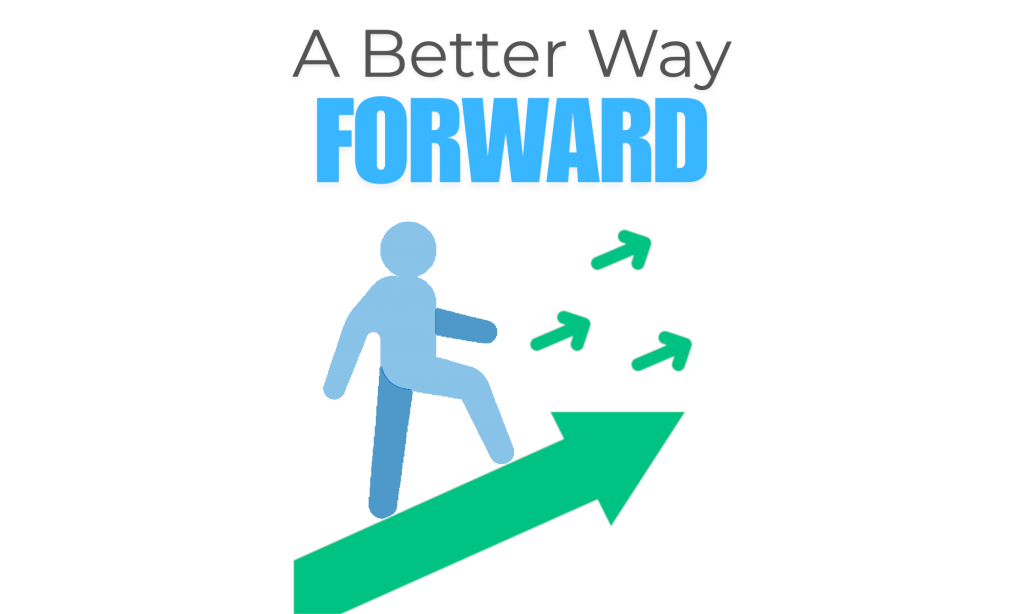
Now, we have the opportunity to move beyond outdated, inefficient models. The time has come to stop accepting top-down control as the only option. Instead, we can embrace decentralized, cooperative solutions where creativity and freedom lead to real change.
When we focus on creating solutions that are both efficient and effective, the market—driven by individuals—will naturally adopt them. By allowing Gods model of love, freedom, and abundance to lead the way, we can eliminate the need for top-down control that stifles growth and potential.
The future lies in returning to the principles of bottom-up change. We don’t have to ask the government to control every aspect of our lives or solve every problem. Instead, government should provide a framework for resolving disputes while allowing individuals to innovate and thrive, providing efficient and effective solutions to help one another.
We live in a transitional time, with the opportunity to build new, decentralized systems that solve problems, create value, and open new possibilities. The question we must ask ourselves is whether we want to continue with the top-down, centralized control model or return to God’s vision of freedom and abundance through God glorifying stewardship.
- Psalm 33:12: “Blessed is the nation whose God is the Lord, the people he chose for his inheritance.”
A reminder that the true blessing comes when a nation’s leadership aligns with God’s values, fostering freedom, justice, and stewardship. - Galatians 5:13: “You, my brothers and sisters, were called to be free. But do not use your freedom to indulge the flesh; rather, serve one another humbly in love.”
A reminder that freedom should be used responsibly to serve others, not for selfish purposes. This aligns with the idea that freedom allows for innovation, but should always be exercised with love and responsibility.
- Romans 12:4-5: “For just as each of us has one body with many members, and these members do not all have the same function, so in Christ we, though many, form one body, and each member belongs to all the others.”
This speaks to the idea of community and individual responsibility—each person plays a unique role in a collective effort, and everyone’s contributions matter.